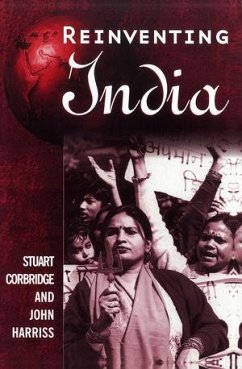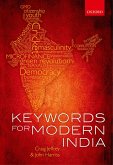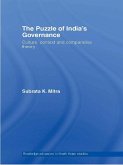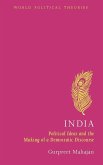Dieser Download kann aus rechtlichen Gründen nur mit Rechnungsadresse in A, B, BG, CY, CZ, D, DK, EW, E, FIN, F, GR, HR, H, IRL, I, LT, L, LR, M, NL, PL, P, R, S, SLO, SK ausgeliefert werden.
"This is a superb analysis of India's changing political economyfrom the 1940s to 2000. The authors sustain a clear and compellingargument while negotiating a thicket of contentious issues relatedto politics and the state at different levels, democracy, classstructures, modes of accumulation, development, ideologies andreligions. Essential reading for all scholars who have an interestin these subjects." David Potter, The Open University
'This is a useful book. The authors should be congratulated forproviding a comprehensive treatment of a complex and fast changingpolitical economy. The book can be used with profit for upperdivision courses dealing with post-independence India.'Contemporary Sociology
"This is a Superb book, deserving readers from severalfields." Canadian Journal of Sociology Online
"Those who are seriously interested in acquiring anunderstanding of contemporary India are recommended to tackle thisscholarly text." Progress in Human Geography
"Interesting to the student of contemporary democracies, and ifound reading them in conjunction very illuminating. When there issuch an excellent body of English Language Literature oncontemporary India society one wonders why it is that so manysociology students in the west will complete their studies withoutever having read an article or picked up a book written on the'world's largest democracy'." Journal of the BritishSociological Association









